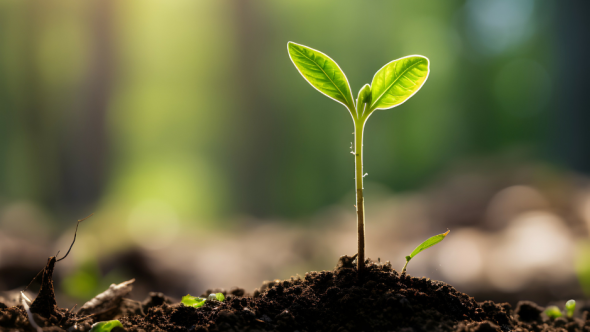The inaugural conference, moderated by Corentin Hecquet, a sociology graduate from the Université catholique de Louvain and PhD in environmental sciences, highlighted the urgency of promoting food sovereignty in a changing world and explored the close links between food, health and the environment. Students had the opportunity to deepen their understanding of agricultural policies, sustainable food practices and their impact on public health. "During my lecture, I try to address interdisciplinary openness to other types of knowledge, such as that of patients, as well as critical thinking," shares Corentin Hecquet. More than just an academic discussion, the meeting aimed to stimulate active reflection on the role of healthcare professionals in promoting fair and ecologically responsible food systems.
Then, workshops linked to the theme enabled students to think about the issues pro-actively. The organization of DJESA called for interdisciplinarity - various disciplines must collaborate to achieve food justice and thus, the sustainability of life. In this sense, the conference also opens the discussion for medical students to the "One Health" philosophy, which aims to foster interaction between different disciplines to achieve recognition of the interconnectedness of living things, of "one health". The professors want to integrate this philosophy into the medical curriculum, promoting harmony between interdisciplinarity and sustainable development. "We want to make students aware of the important role they are going to have to play. This philosophy requires interdisciplinarity, respect and acceptance of the fact that no single solution exists. We're going to have to move forward, admittedly with our limitations, but not back down from the problem and collaborate", supports Caroline Canon.
It would appear that the objective has been achieved, with many students having been made aware, sharing positive opinions. "I find it very interesting to broach this subject in our curriculum because some students will go into this field. Confronting them with these issues now will prepare them for the future", relates Livia Saccon, a biomedical sciences student. "This conference taught me a lot about subjects I didn't know," rejoices Alexandra Priso, pharmacy student.
In conclusion, DJESA was an opportunity for students in the fields of life sciences, health and disease, to broaden their horizons and become aware of the crucial importance of food sovereignty in the current context. This interdisciplinary initiative encourages critical thinking and prepares future healthcare professionals to play a key role in a fair and ecologically responsible manner.
